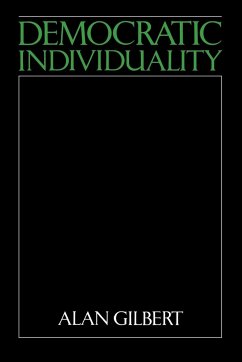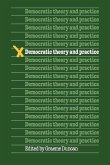This ambitious and sweeping book presents a powerful argument against moral relativism and in favor of the objectivity of a theory of democratic individuality. Unlike much recent work in this field, the book does not simply adumbrate such a view. Rather, it develops the parallels between various versions of scientific and moral realism, and then reinterprets the history and internal logic of democratic theory, maintaining, for example, that the abolition of slavery represents genuine moral progress. The book also recasts the clashes between Marxist and Weberian, radical and liberal sociologies in the light of these moral claims, and sketches the institutions of a radical democracy.
Table of contents:
Introduction; Part I. The Theory of Freedom and Individuality: Slavery, Mutual Recognition and Modern Egalitarianism: 1. Empiricism, neokantianism and realism in science and ethics; 2. The capacity for moral personality and the ambiguities of liberalism; 3. A common good and justice in war; 4. Neokantianism and moral realism; Part II. Reltrieval of Democracy and Individuality in Marxian Theory: 5. Historical materialism and justice; 6. Two kinds of historical progress; 7. The Aristotelian lineage of Marx's eudaimonism; 8. Radical democracy and individuality; Part III. Liberalism, Marxism and Moral Objectivity: 9. The Protestant Ethic and Marxian theory; 10. Nationalism and the dangers of predatory 'liberalism'; 11. Status and politics; 12. Bureaucracy, socialism and a common good; 13. Levels of Et disagreement and the controversy between neokantianism and realism; Bibliography.
The parallels between scientific and moral realism are drawn to reinterpret the history and internal logic of democratic theory and present a powerful argument 1n favor of the objectivity of democratic individuality.
Hinweis: Dieser Artikel kann nur an eine deutsche Lieferadresse ausgeliefert werden.
Table of contents:
Introduction; Part I. The Theory of Freedom and Individuality: Slavery, Mutual Recognition and Modern Egalitarianism: 1. Empiricism, neokantianism and realism in science and ethics; 2. The capacity for moral personality and the ambiguities of liberalism; 3. A common good and justice in war; 4. Neokantianism and moral realism; Part II. Reltrieval of Democracy and Individuality in Marxian Theory: 5. Historical materialism and justice; 6. Two kinds of historical progress; 7. The Aristotelian lineage of Marx's eudaimonism; 8. Radical democracy and individuality; Part III. Liberalism, Marxism and Moral Objectivity: 9. The Protestant Ethic and Marxian theory; 10. Nationalism and the dangers of predatory 'liberalism'; 11. Status and politics; 12. Bureaucracy, socialism and a common good; 13. Levels of Et disagreement and the controversy between neokantianism and realism; Bibliography.
The parallels between scientific and moral realism are drawn to reinterpret the history and internal logic of democratic theory and present a powerful argument 1n favor of the objectivity of democratic individuality.
Hinweis: Dieser Artikel kann nur an eine deutsche Lieferadresse ausgeliefert werden.








